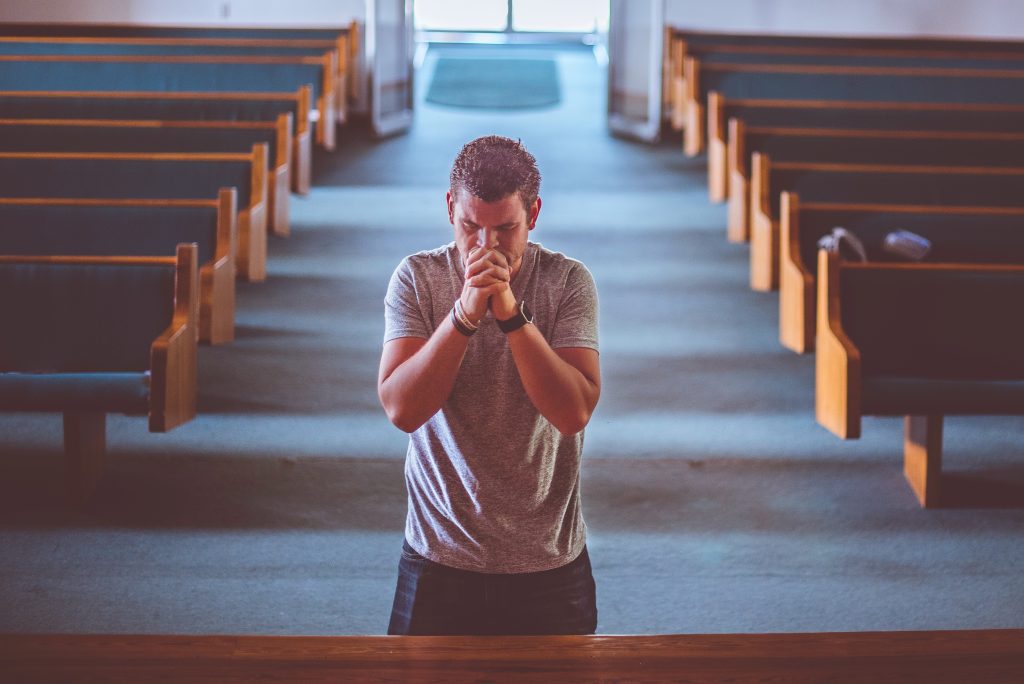Church attendance and mental health may be more intrinsically linked than churchgoers believe. We’re going to explore the link between attending church and a person’s own happiness and well-being.
The Link Between Church Attendance and Mental Well-Being
A study on personal satisfaction found that 92% of people who attend church weekly claim that they’re personally satisfied in their lives. This figure falls by more than 10% for people who attend once a month or less.
Church attendance and public mental health seem to have a link, but research is inconclusive as to why people seem to have better well-being. One theory that is believed to be somewhat accurate is that:
- Church leads people to have a “cause”
- Maintaining a “cause” helps a person have a reason in life
A major peer-reviewed study also found that spirituality and religion helped people better cope with life changes and stressful events in their lives. Illness even impacted these individuals less often. The systematic review analyzed medical journals from 1872 – 2010 to come to these conclusions.
There’s an undeniable link between church attendance mental health but we can only speculate as to “why” this link exists. Below are a few of the reasons that worship may improve a person’s mental well-being.
Finding Support and Community in Church


If you look at modern seating solutions in churches, you’ll find that attendees are close together, worshipping and sharing in their faith together. Many attendees view the members of their church as “family,” and they gather routinely, building even deeper relationships.
What does this do for your mental health?
- Builds a sense of support
- Builds a community
You’ll build lasting relationships with other attendees and can find:
Support
Life is filled with ups and downs, and it’s not uncommon for people to feel like they’re alone in their troubles. Church creates a sense of support that a person can rely on when:
- Asking questions to their pastor or members about faith and religion
- Struggles in life occur and they need a community to rally around them
For example, many members of the same church will lose a spouse or family member during their lives. Instead of dealing with the loss alone, they can lean on the support of the church and its members to find peace in the loss.
It’s not uncommon for members to call others to check on them to see if they need anything or if they need to talk at this trying time.
Additionally, some members may ask you if you want to go out somewhere to take your mind off the grief or even bring you dinner to allow you a break from cooking while you grieve. This level of support helps a person’s overall mental health and well-being.
Community
When you go out into your community, do you feel like a stranger among a sea of people? Even with all of the innovation in the world of technology, people feel lonelier than ever. There’s a difference between talking to your neighbors in person and texting them.
While traditional pews are being upgraded to modern pew chairs, the seating change hasn’t led to less of a community being formed.
Instead, church makes a person feel like they’re part of the community they live in. For example, you may go to the:
- Mechanic and the smiling face looking back at you is Jim from church
- Doctor’s office and the receptionist is the one who sat next to you last week at church
- Store and your car won’t start, but you notice Ariana from church, and she drives you home
Building a strong social circle is undeniably difficult when you’re older. However, church allows you to form that community that is seemingly lost along the hustle and bustle of life.
Church Attendance as a Source of Comfort and Stress Relief


- Comfort and a place of safety and security in your life
- A means of being able to relax and giving yourself the time to worship
- Stress relief by knowing that you are “allowed” to slow down and take time to worship
For many people, they feel an overwhelming level of stress when they’re free from the rigors of work. Perhaps you’ve felt the same way. When you’re done with the week, you feel the need to “get things done” that you haven’t been able to do all week.
Stress levels rise at this point, and you can feel like if you sit down for even a moment, you’re being lazy or unproductive.
Worship empowers you to take a break, feel comfortable and relieve stress that can otherwise have a negative impact on your day-to-day life.
Strengthening Resilience through Faith and Worship
Resilience, church attendance and mental health are linked, too. Faith and worship show churchgoers that there is a long-view perspective ahead of them that is very easy to overlook. There is solace in finding that the trials and tribulations that you’re going through today are not going to last forever.
Through worship, you’ll find that there is hope and the chance of things getting better.
The problems of today will fade away. Circumstances that you find yourself in will be overcome, and religion can often help you realize this in an impactful way. You can also build what is described as “shared resilience.”
As a community, you can band together to overcome your troubles and help others find this same level of resilience.
Discovering Purpose and Meaning Through Church Attendance
Church attendance, for many, helps people find a sense of purpose and meaning in life. It’s often difficult to see the “purpose” when you’re:
- Working day and night
- Struggling to pay your bills
- Never able to go out and enjoy yourself
- Doing the same thing day after day
- Falling on hard times
- Dealing with illness
- Etc.
Everyone has thrown up their hands in life and said, “What’s the purpose?” Imagine your tire is flat and after a long day of work, you come out of the grocery store to find that you can’t even leave.
“Why?!” is the first thing that comes out of a lot of people’s mouths.
Attending church will help you find purpose. Perhaps this is a trial that you’re meant to overcome or there is a meaning in this, such as slowing down and enjoying the small moments.
Church can provide anyone who is struggling with a purpose and meaning in life that is greater than themselves. When you have a meaning and purpose, it’s easier to get through your day-to-day life, overcome challenges and remain happy and optimistic. Faith is a powerful tool that helps everyone build purpose and meaning.
Summary
Is church attendance required for good mental health? No. Church attendance seems to increase the likelihood of a person having fewer mental health issues and a higher level of personal satisfaction, but there are plenty of people who do not attend that are also happy in their lives.
If you feel like you have a lack of purpose or no cause in life, church may be the missing link to finding happiness.






